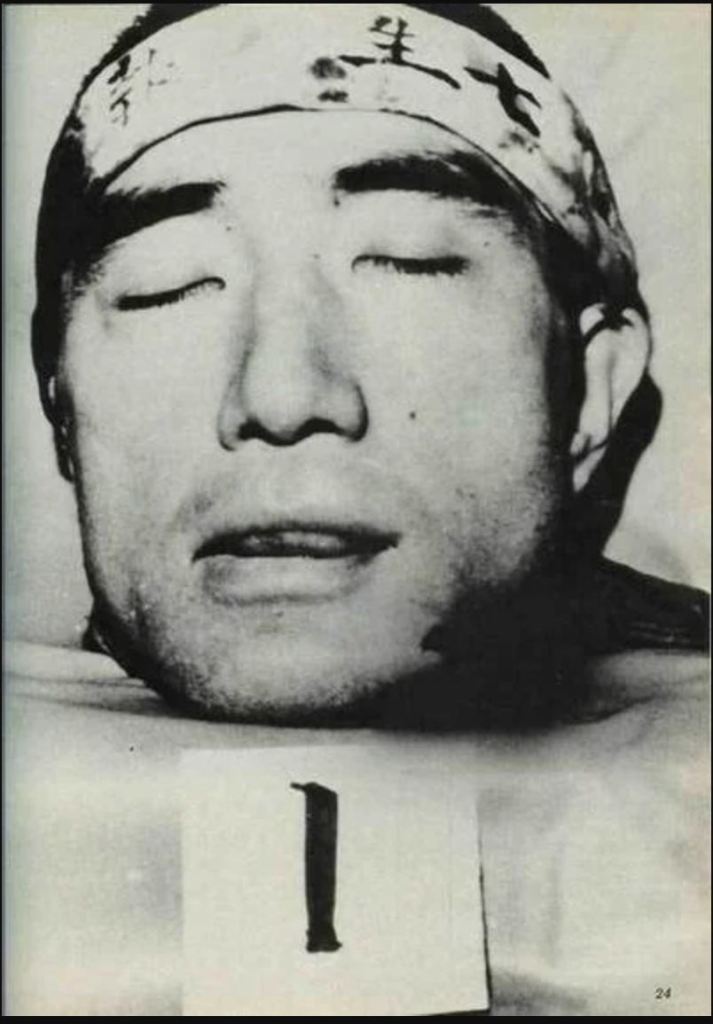“Only through the group, I realised — through sharing the suffering of the group — could the body reach that height of existence that the individual alone could never attain. And for the body to reach that level at which the divine might be glimpsed, a dissolution of individuality was necessary. The tragic quality of the group was also necessary, the quality that constantly raised the group out of the abandon and torpor into which it was prone to lapse, leading it to an ever-mounting shared suffering and so to death, which was the ultimate suffering. The group must be open to death — which meant, of course, that it must be a community of warriors.”
Source: Yukio Mishima‘s autobiographical essay Sun and Steel (1968)

Mishima opposed both the collectivist left and the individualism and Western liberal cosmopolitanism he saw infiltrating/invading Japan. In 1966 he committed suicide publicly in protest.
Many strands of left collectivism require submersion into the group, just as many strands of right-collectivism do. The left-right spectrum was in its origin and until today a false alternative of collectivisms, one end of the spectrum calling for the primacy of the racial/ethnic/national group and the other end calling for the primacy of the economic/international group—e.g., the spectrum that puts Mussolini and Hitler at the far right and Marx at the far left.

Genuine individualism rejects all collectivisms. The value of all groups is instrumental in the service of the fulfillment of the individuals who make them up. Individuals do not exist to serve their families, nations, economic classes, businesses, sports teams, and so on. Rather, those social organizations exist to advance mutually the interests of the individuals who comprise them.
Hara-Kiri seems to be a relic of the past, much like Crucifiction (sp?) or Burning-at-the Stake. Originally an integral part of a Past Society, I think that today it is best remembered as part of that past society, and not an integral part of the Present-Day World.